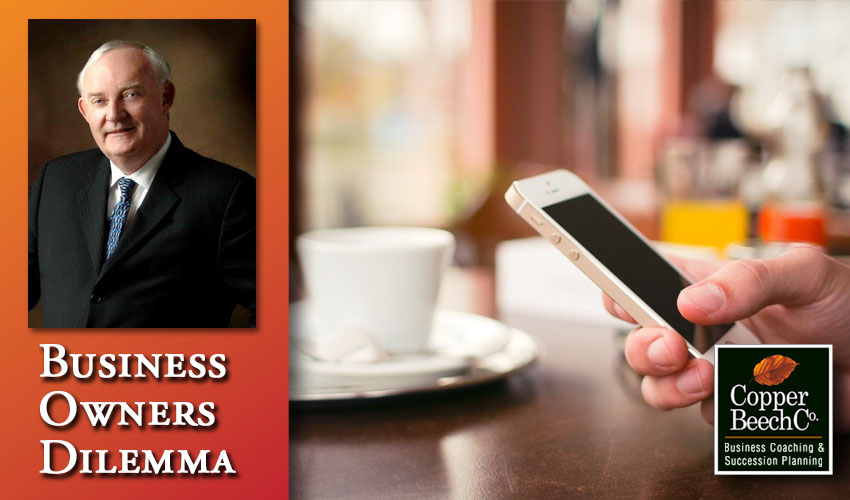Business Owners Dilemma

George stirred his coffee idly, “This time last year I was in Florida” he said. The business owner was sitting in front of me as we concluded our lunch meeting. “I remember we were having terrible weather, rain and cold…I recall thinking ‘I gave up a week at the office for this’”
I smiled and reflected on this attitude. For George, a week away from the office felt like a sacrifice. That placed him squarely in the company of many other independent business owners whose identity is so bound up with their business that they cannot imagine doing anything else. That breakdown of imagination pointed to issues both personal and professional that George was reluctant to deal with. What was George’s family missing when this tough, humorous, intelligent man was not present even when he was with them on vacation, because his mind was on his work? How can someone, whose identity is so bound up with his business, possibly plan for succession, for a time when he will not be essential to the business? What will be the financial cost to his family, his employees, and his legacy for this failing.
George has built a thriving business. Doing so required him to imaginatively overcome numerous problems and work tenaciously when success was not certain. Why do business owners like George turn aside when the next great challenge is to prepare the business for someone else to take over? We need to tap that creativity and that strength when the time comes to start passing authority and responsibility to others.
I watched George stir his coffee absently. “Do you read books when you go away?” I asked.
“No, I just read technical stuff. Last fall I took the Employment Standards Act with me to bone up on H.R. questions.”
How do I reach this guy? Does he ever have waking thoughts that are not about his business?
Can I reach him?
He’s smart, he’s financially secure, he probably understands that his business is worth considerably more if it can run without him. That of course doesn’t mean it has to run without him, it just means that he and the business are prepared if something should happen. Part of any plan business owners should make, regardless of age, is the contingency plan. The rational part of George knows that, but some other part of him resists the implications.
What happens if I can’t come to work?
Who will lead the business in my absence and what resources will they need?
I looked at George. He was quietly checking a text message. What he needs are some interesting options. We need to focus on what he would move to, not what he is leaving behind. Business owners are builders. They are inventive and energetic. Retirement is not a word that gives them comfort. It implies ending, withdrawing.
George needs help to look at options that will replace his purpose of running the business day to day with another purpose. That new purpose must be equally or even more fulfilling but must also allow him to step back, to view everything going on in his life from a different perspective. Looking at a week away from the office as undesirable, even uncomfortable, suggests that day-to-day operations have become a safe place, a way of avoiding the next great challenge. If George is keeping his face focused on his desk (or his phone) that is perhaps because he is afraid of what he will see if he lifts his face up and looks around. My job, as his coach, is to help him look around, and to identify all the options available to someone with his talent and drive, while still allowing him to look after the legacy from his life’s work.
George put his phone down, screen up, on the table and looked at me.
“George,” I say looking him in the eye, “There’s something I want to talk to you about…”


 At Copper Beech Company, we believe that planning for the future helps create the future you want. We help clients identify goals and we care about the results our clients achieve. Whether the goals are improving financial position, growing the business, transitioning management and ownership. Helping Clarify goals, plan the route and holding the client accountable for achieving the milestones along the way is how we bring value to the engagement.
At Copper Beech Company, we believe that planning for the future helps create the future you want. We help clients identify goals and we care about the results our clients achieve. Whether the goals are improving financial position, growing the business, transitioning management and ownership. Helping Clarify goals, plan the route and holding the client accountable for achieving the milestones along the way is how we bring value to the engagement.